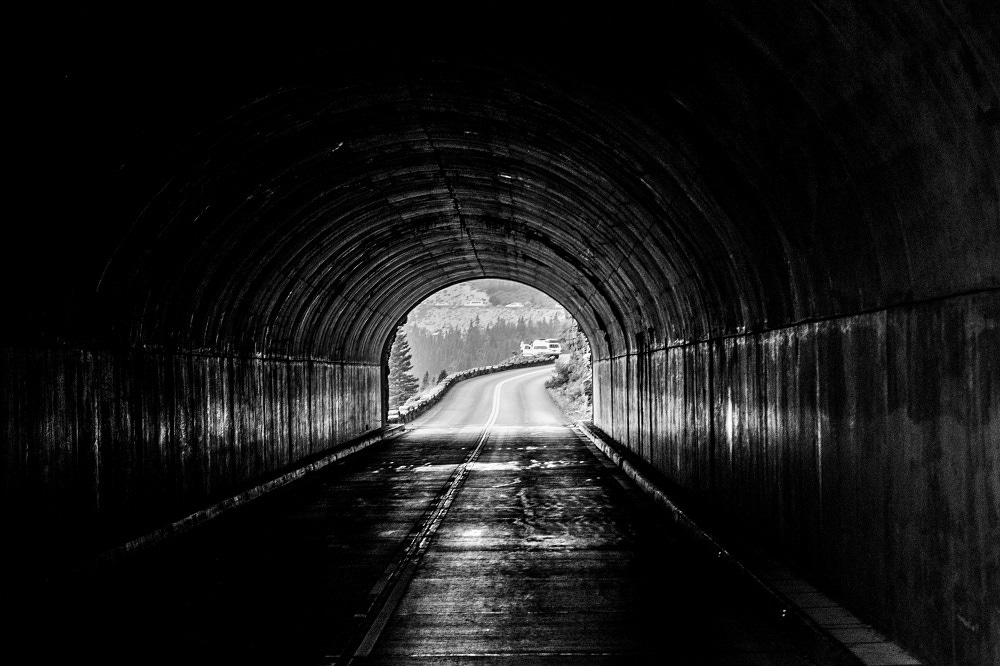Evade the Abyss - How to Prevent Workplace Burnout
Part 2 of 3 - Recommendations to prevent workplace burnout.
It’s easy to recognize signs of burnout in others now that I’ve gone through it myself. Many people are pushed to their limits every day and it’s tragic to witness. This is one of the reasons for sharing my experience - I truly want to help in any way I can.
Part 1, Emerging from the Abyss: My Experience with Workplace Burnout, is my first-hand account. This second part offers a few ideas about how to prevent it from happening.
*Please note: burnout doesn’t always occur in the workplace, it can happen as a result of any chronic stress such as being a new parent or attending college.
Burnout Here, Burnout There
If you don’t already know, I currently work as a school nurse. The other day I walked into the teacher’s lounge and overheard the end of a conversation. What struck me was the tone and feeling. There was overwhelm intermingled with frustration and exhaustion.
I get it, bad days are bound to happen. But this was more than a shitty day, this was someone on the fringe of burnout. When you’ve been there you recognize burnout easily and empathize with the poor soul.
For me, burnout presented itself as overwhelming stress and anxiety that eventually turned into apathy. I hated my job and when I was home the thought of going back to work made me so upset that I would try to ease the anxiety with alcohol.
This Way to Burnout
It’s unfortunate that burnout is such an issue, but there are plenty of resources available if one knows where to look. And I’m here to do my part to help others navigate through.
The following definition is from an article in the Journal of International Medical Research:
“Burnout syndrome is a state of emotional exhaustion, physical fatigue and cognitive weariness caused by long-term uncontrolled and unresolved work stressors.” (Khammissa et al., 2022).
The symptoms can be mild to severe and not everyone will have the same experience though there are commonalities. Burnout isn’t considered a medical condition per se, but it’s good practice to determine if what you are experiencing is burnout versus anxiety disorder, clinical depression, or other mental/emotional disorders.
I highly recommend seeking a trusted medical professional if you notice signs of burnout. I regret not doing that myself, but I’ve since learned from my mistakes.
Burnout can affect mental, emotional, and physical health. Here are the common signs of burnout:
Emotional exhaustion
Fatigue
Anxiety
Insomnia
Mentally drained
Concentration is difficult
Apathy (a lack of interest)
Irritable
Impatient
Cynical attitude
Disengaged
Oh boy, I had all of these signs! The thing to remember here is that in the beginning signs of burnout are subtle and continue to increase without intervention. Ignoring the signs only gives them space to grow and fester.
Here’s an alarming fact:
Chronic burnout increases your risk for heart disease, high blood pressure, depression, and type 2 diabetes.
What My Heart Says
Here’s what I think would have helped prevent me from burning out. They are not scientifically proven - only what I have gleaned from digging deep into my experience.
Self-love is the most important.
If you don’t take care of yourself first, you have nothing left to give to others. I was drawing from my reserves without bothering to fill it back up. If I loved myself I would have prioritized my health and wellness. Self-love leads to self-care. Self-care leads to health.
A positive and resilient mindset does help.
Okay, this is a tough one because yes, mindset will assist you through the rough patches. But if you are working for a shitshow, there’s only so much mindset can do. I believe a positive mindset paired with resilience can prevent one from becoming cynical and disengaged.
Positivity and resilience are qualities that strengthen with use. Don’t be afraid to utilize them, but don’t turn positivity into a crutch either. (See the post on spiritual bypassing for more info).
Look internally.
The most important question to ask yourself is whether your symptoms stem from internal or external factors. Most people who continue to experience full-blown burnout have internal issues that need addressed. I now know this is what happened in my case.
There’s no doubt the external factors were difficult. Nevertheless, it was the internal ones that contributed to my decline. For example, my lack of self-esteem prevented me from being assertive in certain situations.
Perhaps if I’d advocated for myself, things would have turned out differently.
Emotional boundaries are essential for empaths.
Most of us in caring professions are empaths and I’m not saying this is a bad attribute. It’s only detrimental when we don’t know how to set boundaries. In my situation, I allowed all the emotions of my patients and co-workers to affect me. I could feel the pain, confusion, and heartache of others and I allowed those feelings to become my own.
Work-life balance is an ongoing endeavor.
I’m always talking about balance and it can seem like you can’t live a good life if you aren’t well-balanced. Well, you have to take this expression with a grain of salt because there are times when you give more attention to one aspect over the others.
It’s when you give all of your attention to that one thing for an extended period of time that it becomes an issue. I wasn’t focused on anything else but my job and there was no evidence of even a smidgen of work-life balance.
Take time to notice where you are putting your energy, and try to give all aspects of your life some love.
Support can make or break you.
Those who lack support from others tend to suffer unduly. I felt it was necessary for me to figure things out on my own. Little did I know if I had been open to talking to others (professional and non-professional alike), it would have been immensely beneficial.
Vices don’t work.
Yeah, having a drink or two in the evening reduced my anxiety at the moment. However, it was only shoving the real issue deeper and not giving me the space and time required to fully address it. It may seem like a good idea, but turning to bad habits for comfort only magnifies the problem.
Choose activities that allow you to rest and rejuvenate.
I talked about how nature was my saving grace. Hiking, gardening, and nature photography are the things I turn to when stress comes creeping in. And they work great as a preventative!
Find what soothes your soul and brings you peace, then make it a priority.
What Science Says
A 2022 study from the Business Horizons Journal listed 5 strategies for preventing workplace burnout. These approaches involve collaboration between you and your workplace to achieve the best results.
Participate in stress management strategies: such as cognitive behavioral training and mindfulness meditation groups.
Be an active crafter at your job: you have autonomy and flexibility to complete tasks according to your ability. There is variety in your job and plenty of development opportunities.
Make social support a priority: high-quality relationships with co-workers, and support from family, friends, and your community. Crisis management is available and there are minimal stressful and emotional social interactions.
Engage in decision-making: be involved and know how decisions are made and the reasons behind those decisions.
Receive strength-based feedback from managers: set goals, and design a developmental plan that keeps everyone accountable. Performance evaluations are fair and equitable.
These 5 strategies are fine and dandy if you work somewhere that offers this type of support. If not, you should consider working elsewhere - a place where your mental and emotional health are taken seriously.
On the Whole
Whew, that was a lot to unpack!
Thus, I decided to discuss how to get to the other side of burnout in the third part of this series. I didn’t expect this topic to be so long, but in actuality, I’m barely skimming the surface. This is a great beginning though.
I highly recommend reading this article from
: Stress, exhaustion and burnout: how to support yourself effectively with medicinal plantsPart 1:
Part 3:












You know when I lived in the States I never heard the word 'burnout,' Now that I live in Belgium I hear it all the time. These are such helpful and practical tips, I think for not just preventing burnout - but also for feeling better as a whole! With winter temperatures I'm spending less time outside and missing that healing power of nature.
This is wise and good advice.
The mindset thing is hard because, of course, if we could easily choose to adopt a better mindset just like that, we'd have already done so. I say more about this here.
https://letter.adamsandell.com/p/its-the-reaction-not-the-stuff-f74